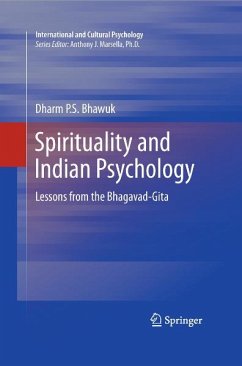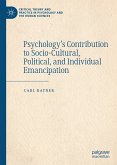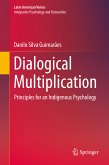Its roots in ancient philosophical texts such as the Bhagavad-Gita make Indian psychology not only an especially rich tradition and one deserving of close study, but also a template for how Western researchers can better understand indigenous spiritual perspectives. From this vantage point, Spirituality and Indian Psychology: Lessons from the Bhagavad-Gita provides accessible models for this understanding, from issues on the individual level (cognition, behavior, emotions, the self) to larger concerns such as intergroup relations and world peace, rarely-encountered concepts of work, bondage/liberation, and desire as well as the more familiar karma and dharma. In addressing the question of whether universals exist in psychology, this thought-provoking book:
- Presents indigenous psychological perspective in terms of one representative worldview.
- Contrasts the Indian worldview with Western scientific culture.
- Analyzes an indigenous research methodology based on culturally relevant concepts.
- Offers spirituality-based models for mapping basic psychological processes and their relationships.
- Clarifies relationships among indigenous, cross-cultural, and Western psychologies.
Cross-cultural psychologists, sociologists, researchers in Indian psychology and culture-anyone involved in the continuing dialogue across the psychologies of the world and advancing the indigenous research agenda will find Spirituality and Indian Psychology a volume of rare interest and insight.
Dieser Download kann aus rechtlichen Gründen nur mit Rechnungsadresse in A, B, BG, CY, CZ, D, DK, EW, E, FIN, F, GR, HR, H, IRL, I, LT, L, LR, M, NL, PL, P, R, S, SLO, SK ausgeliefert werden.
"The blurb on the dust jacket for Spirituality and Indian Psychology: Lessons From the Bhagavad-Gita succeeds admirably, noting that 'globalization, multiculturalism, and Western interest in Eastern thought' have led to increased interest in cross-cultural psychology. ... has potential value for psychologists and other helping professionals. Those interested in the spirituality/psychology interface will find that this book grounds its spiritual references in the Bhagavad-Gita, helping Western readers understand how profoundly Indian thought has been influenced by this and other classics of Indian spiritual literature." (Dennis Davidson, PsycCRITIQUES, Vol. 56 (36), September, 2011)









